

Keith Hunter is fascinated by the chemistry of the oceans and what we can learn. His research looks at trace metals in natural waters – minute amounts of metals, occurring in tiny quantities, but ...
READ MORE
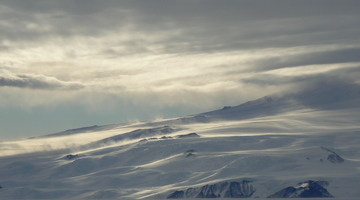
Antarctica is the coldest, driest, windiest and highest continent on Earth. What makes the frozen continent so valuable to scientists and vulnerable to human contact? Every year, scientists and ...
READ MORE
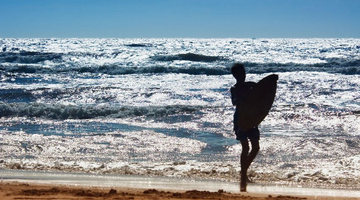
The ocean is part of our lives – we may swim in it, sail on it or eat food from it. Many aspects of the ocean affect us – it controls climate, supports life, wears away land, and provides ...
READ MORE

This teacher resource lists selected articles from the Connected and School Journal reading series that support science concepts when teaching about climate change. Connected and School Journal ...
READ MORE
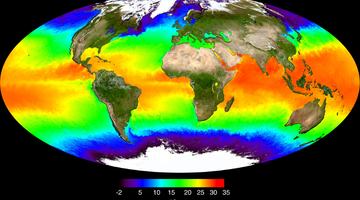
In this activity, students look at what happens when hot and cold water meet. By the end of this activity, students should be able to: discuss how temperature affects the density of water discuss ...
READ MORE
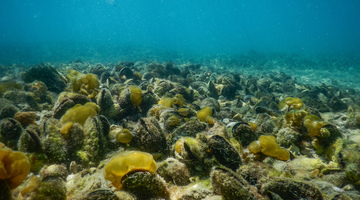
Marine stressors can come from natural, unexpected events such as erosion from an earthquake or slip, but many stressors are linked to human activities. Most marine ecosystems are resilient, but ...
READ MORE
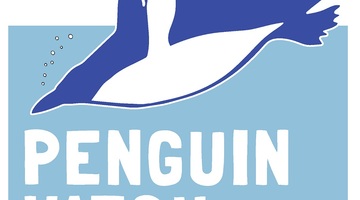
Help scientists establish valuable baseline data about the numbers, locations, habits and health of penguins in a range of Southern Ocean sites. This information will enable better understanding ...
READ MORE
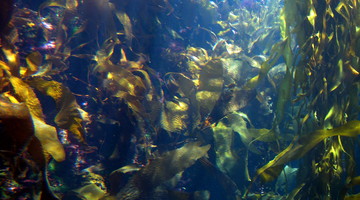
Kelp forests are one of the most biodiverse habitats on Earth. Every nook and cranny is jam-packed with life! This citizen science project wants to understand more about how kelp forests grow and ...
READ MORE
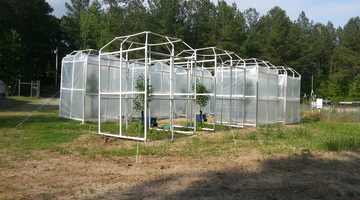
By comparing some features of fossilised plants with the same features of plants living today, scientists hope to be able to learn more about the effect of changing carbon dioxide (CO2) levels in ...
READ MORE
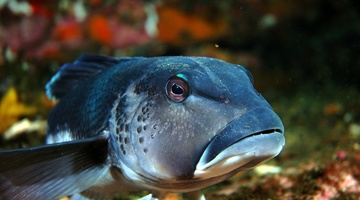
There are many marine classroom activities and resources on the Science Learning Hub useful for Seaweek 2015. This online PD session recorded on 19 February 2015 shows primary and secondary ...
READ MORE
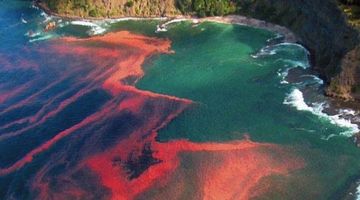
Seaweek is New Zealand’s annual national week about the sea. It is coordinated by the Sir Peter Blake Marine Education and Recreation Centre (MERC) and includes a wide range of events ...
READ MORE

Do you need resources for Seaweek? Are you planning a science unit on the sea? In this online PD session recorded on 18 February 2016, PD provider and teacher Barb Ryan explores some of the ...
READ MORE
Dr Phil Sutton of NIWA explains how New Zealand sits at the boundary between warm, salty subtropical water and cool, less salty subantarctic water. Argo and Jason have shown that changes in ocean ...
READ MORE
Dr Phil Sutton of NIWA explains how Argo scientific floats are deployed and how they work in the water. He describes their cycle of floating at depth, collecting measurements as they rise to the ...
READ MORE
Dr Phil Sutton of NIWA outlines the aims of the international Argo and Jason projects. Argo uses over 3,000 scientific floats to continuously measure the salinity and temperature of the ocean ...
READ MORE
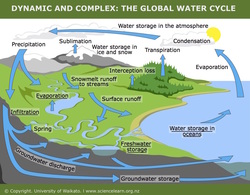
Water in the Earth system is influencing all aspects of life on Earth. Pathways, storage, transfers and transformations have an effect on the global climate and human welfare. Within this ...
READ MORE

Planning pathways using Love Rimurimu and Science Learning Hub resources. Click on the labels for links to supporting articles, media and student activities. Select here to view the full ...
READ MORE
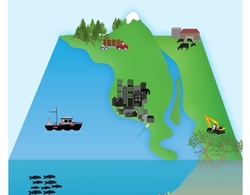
Use this interactive to identify stressors in marine environments. Drag and drop the text labels onto the diagram.
READ MORE